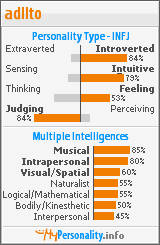 When I hear an evangelical talking about “building God’s kingdom,” my theological sensibilities go into scramble mode. “That way lies pelagianism!,” I want to scream. Yet among evangelicals you will frequently hear this kind of talk.
When I hear an evangelical talking about “building God’s kingdom,” my theological sensibilities go into scramble mode. “That way lies pelagianism!,” I want to scream. Yet among evangelicals you will frequently hear this kind of talk.
I've added a few new blogs to my Google Reader account and I came across this opening line to a post on one of them. (read it here)
Learning to listen to ourselves is really important. My mother used to record her piano students and play back the performance to help them listen more carefully. One student, this week, in our study group asked How can I make God recognise me? That was a problem for the prophets of Baal. We were gentler than Elijah. Fortunately he listened to himself and realised the foolishness of the question because we can never make God do anything. But do we pay attention to what we say? Do we hear this talk of doing this and that for God, building the kingdom, this speak of humans assuming what is properly the work or rule of God? Is there a point when what we said excludes us from the greater community of faith i.e. heresy? I think so, though ignorance is bliss for some.
The blog argument developed: -
If the kingdom is the dynamic reign of God, how can we as humans “build” it? Actually, it should come as a relief to realize that you and I aren’t in the business of building God’s kingdom. ... But even the most impressive involvement of Christians in, say, racial reconciliation or ministry to the poor or restoring broken families, let alone evangelistic proclamation, does not amount to “building the kingdom” or, come to think of it, “changing the world.” These are signs or anticipations of the kingdom’s power and presence and future culmination, but provisional signs...I believe there are core non-negotiables within the community of the church universal. These are what defines the community and perhaps the points when some leave or find they have to leave. I'm not suggesting a second Spanish Inquisition nor witchhunt but the need for good theology both taught and used. Am I being too conservative? I don't think so because there are certain confessional values that make a Christian a universal Christian i.e. united with all others both geographically and historically.
There is one body and one Spirit—just as you were called to one hope when you were called— one Lord, one faith, one baptism; one God and Father of all, who is over all and through all and in all. Eph 4:4-6









